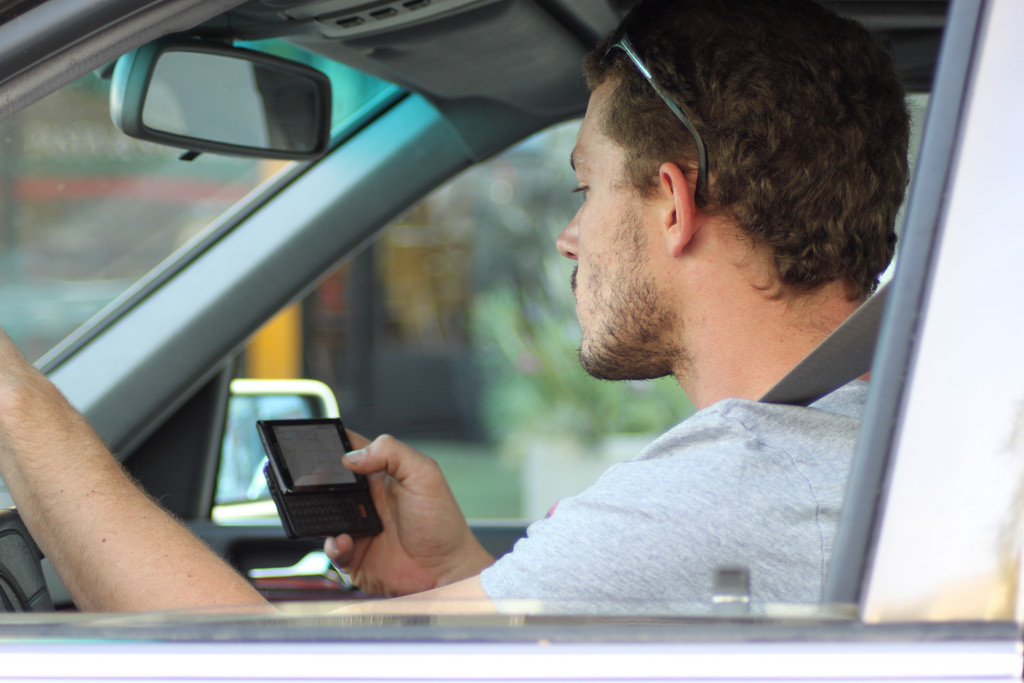“Bigger penalty for driving while on the phone”
June 19 As social media reaches saturation level, concern grows about the impact on road safety. Mary Adeyi, 24, a Commonwealth Commonwealth Correspondent in London, UK, writes that earlier hopes about hands-free devices offering a solution are being dashed as researchers find that distraction not tied to just one technology.
As social media reaches saturation level, concern grows about the impact on road safety. Mary Adeyi, 24, a Commonwealth Commonwealth Correspondent in London, UK, writes that earlier hopes about hands-free devices offering a solution are being dashed as researchers find that distraction not tied to just one technology.
New penalties to combat drivers using their mobile phones while driving have been introduced in the United Kingdom. While driving with mobile phones was banned in 2003, the use of hand-free mobile kits has remained been legal. However, the UK is taking a far tougher stance to combat drivers’ uses of technological devices and app services at the wheel.
A Royal Automobile Club road safety spokesperson, Pete Williams said: “The use of handheld mobile phones is at epidemic proportions and sadly the attitudes of many drivers have relaxed towards this illegal and dangerous activity. The new tougher penalties will therefore be welcomed by law-abiding motorists as a better deterrent.”
According to a study conducted by Brake and Direct Line, a road safety charity, while there are fewer hand-held mobile phones being used, the use of hands-free kits has risen. At the same time, there is a mistaken view that the mobile kits are a safe and risk-free alternative to hand-held phone usage at the wheel. The survey reveals that three in ten people are unaware that using any type of phone device when driving is dangerous.
The government is pushing to re-educate drivers on the dangers of using technological devices at the wheel. The message from posters, traffic stops and increased police patrols at the beginning of this year is to clarify that it is the distraction of the conversation that is dangerous. Studies have found that the likelihood of accidents with injuries is increased fourfold, whether using either a hands-free kit or the hand-held mobile phone at the wheel (University of Western Australia, 2005). Using a hands-free alternative is not any safer than using the hand-held phone itself.
Texting at the wheel is widespread, with drivers either sending or receiving messages. The increased incidence of using smartphone apps and social media at the wheel is an additional threat. Other dangers include vehicle technology, music, smoking, eating and drinking, all of which are detrimental to a good driving mind-set and the attention needed for safe driving. Scientist have found that younger drivers are more at risk of succumbing to distractions within the vehicle.
“Our message is simple and clear: do not get distracted by your mobile phone while driving. It may seem innocent, but holding and using your phone at the wheel risks serious injury and even death to yourself and other road users,” said Transport Secretary, Chris Grayling.
Doubling penalties will act as a strong deterrent to motorists tempted to pick up their phone while driving. The tough new penalties will also mean repeat offenders could find themselves banned from the roads if they are caught twice.
The Royal Society for the Prevention of Accidents added in a statement: “Although you won’t be taking your eyes off the road, merely engaging in a conversation will mean that your attention is elsewhere and not fully on the road and the environment around you, and if you’re driving is affected you could be charged with “not being in proper control of your vehicle”.
Previously, use of a mobile phone while driving incurred a £100 fine and three penalty points. In more serious cases police officers are able to prosecute drivers for careless or dangerous driving and request a breath test. A firmer stance has been taken and penalty points and fines for using a phone while driving will double, to six points and a £200 fine.
Under the new law, drivers can have their licence revoked if they obtain six points within two years of passing their test. If a driver is caught twice, or accrues 12 points on his or her licence, they face disqualification from driving and fines that could total £1,000.
“Hopefully as drivers become more aware of the dangers inherent in the use of mobile phones whilst driving, it will become as much of a social taboo as drink driving has become in recent years,” said Rob Miles, director of Motor at Direct Line.
Earlier this year, a specially designated enforcement week saw roughly 3,600 drivers handed penalties. Police patrols are likely to continue throughout the next few months.
photo credit: Lord Jim April10 033 via photopin (license)
…………………………………………………………………………………………………………………
About me: Living in London, I am keen to understand the relationship between culture and the city. Using research and group experiences, I aim to bring attention to how urban governance and public spaces impact social inequalities, public health, education and the youth at local, national and international levels.
My interests include history, intersectionality, world politics and global sustainable development.
…………………………………………………………………………………………………………………
Opinions expressed in this article are those of the author and do not necessarily represent the views of the Commonwealth Youth Programme. Articles are published in a spirit of dialogue, respect and understanding. If you disagree, why not submit a response?
To learn more about becoming a Commonwealth Correspondent please visit: http://www.yourcommonwealth.org/submit-articles/
…………………………………………………………………………………………………………………




